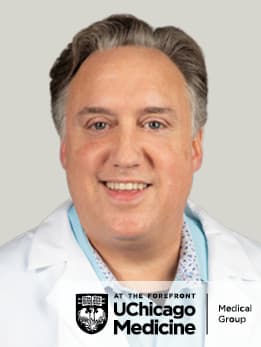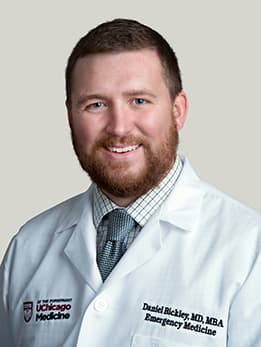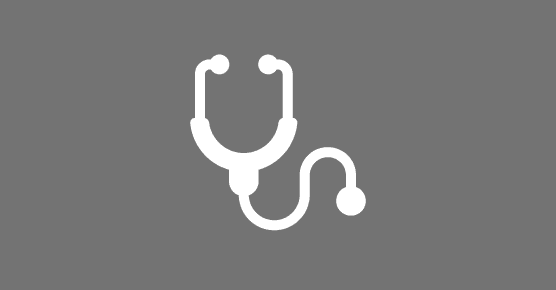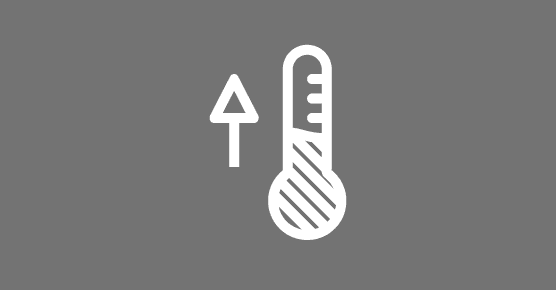Urgent care vs emergency room: What's the difference?

It’s Saturday, and the cold you’ve been nursing for the past few days seems to be getting worse. You’ve vomited once and have a fever. Should you head to a hospital emergency room or an urgent care clinic?
Learn more about our urgent care Learn more about our ER
If you’ve ever wondered whether to go to an ER or an urgent care clinic, you’re not alone. As physicians, we’re often asked by family, friends and patients if their symptoms warrant an ER visit, a trip to an urgent care clinic, a call to their primary care doctor or simply management at home.
If you are experiencing mild symptoms, such as mild aches and pains, a mild cough, etc., that could be caused by the flu, COVID-19, RSV or hundreds of other viruses, consider “doing what your mom used to tell you” — rest, drink plenty of fluids, take over-the-counter medications like Tylenol, if needed, and monitor your symptoms.
If your symptoms don't improve over time, or if they worsen, calling your primary care physician may be beneficial. Many primary care physicians are now offering virtual visits and can assess patients by a phone or video call fairly quickly.
However, if your symptoms are more severe and can’t wait for an appointment with your doctor, consider your other options for care.
Urgent Care
Unless a condition is life-threatening, a trip to urgent care is generally a better use of a patient’s time and resources to treat injuries, fevers, infections and other ailments.
Urgent care centers often have far shorter wait times than the ER and cost less than a traditional hospital emergency room visit. And many, like our UChicago Medicine Dearborn Station, UChicago Medicine Medical Group - Homewood and UChicago Medicine River East urgent care centers, offer convenient benefits such as walk-in appointments and on-site x-ray.
There are a variety of conditions treated at our urgent care centers, but common reasons to visit one include:
- If you are experiencing mild to moderate cold symptoms and not sure whether it is flu, COVID-19 or RSV.
- If you have a sore throat and are concerned it is viral or strep throat.
- If your virus or cold symptoms developed into infections, like ear infections or pneumonia, and may require antibiotics.
Our urgent care clinics have board-certified physicians on staff who can test for and treat these conditions and much more. We treat both adult and pediatric patients and are available 7 days a week, from 8 a.m. to 8 p.m. during weekdays and 8 a.m. to 4 p.m. on weekends and holidays.
If necessary, urgent care providers can also connect you with a higher level of care.
Emergency Room
You should call 911 or come right to the emergency room if you’re systemically sick. That’s when an illness affects your entire body, and you have severe pain or sudden onset of severe symptoms, a fever that won’t break, or “something doesn’t work,” like you’re unable to move an arm or leg or breathe normally. This includes:
- If a person has a severe injury or allergic reaction.
- If they pass out or experience any signs of a possible stroke or signs of a heart attack.
While you or the victim may have a hospital of choice, an emergency may warrant going to the nearest emergency location for immediate treatment. With their connection to hospitals for seamless admittance and advanced level of technology, ERs are the best place for actual emergencies.
Should you call 911 or go to the hospital emergency room?
The American College of Emergency Physicians (ACEP) has useful guidance on when to call 911, but common reasons include:
- The condition is life-threatening and requires attention as soon as possible.
- You are unable to move yourself or the victim without causing harm or further damage.
- You are physically or emotionally unable to drive or be transported to a hospital ER.
Urgent Aid for Lower-Level Emergencies
If you’re in the Southland, UChicago Medicine Ingalls Memorial offers an additional option to consider before heading to the ER. In our south suburban urgent aid centers, physicians provide ER-level care for lower-level emergencies — injuries, viruses and other illnesses — 24 hours a day, every day in an urgent care-like setting.
If a stable patient needs higher-level imaging such as an ultrasound or CT scan, urgent aids may be a better fit than an urgent care clinic.
The cost of an urgent aid visit is the same as the emergency department of Ingalls Memorial for the same level of care. The co-pay for emergency services will apply to your urgent aid visit, which may be higher than the co-pay for services provided by urgent care centers that are not part of a hospital’s emergency department.
Joseph Newberg, MD, is a UChicago Medicine Medical Group provider. UChicago Medicine Medical Group is comprised of UCM Care Network Medical Group, Inc. and Primary Healthcare Associates, S.C. UChicago Medicine Medical Group providers are not employees or agents of The University of Chicago Medical Center, The University of Chicago, or UChicago Medicine Ingalls Memorial.

Joseph Newberg, MD
Board-certified family medicine physician, Joseph Newberg, MD, specializes in care for the whole family.
Learn more about Dr. Newberg
Daniel Bickley, MD
Daniel Bickley, MD is the Interim Medical Director of the Adult Emergency Department at the University of Chicago Medicine.
Learn more about Dr. BickleyWhere Should I Go for Care Today?
You never know when a sudden injury or illness may happen. That's why it's so important to be prepared and know what steps you can take as soon as symptoms appear. Click below to learn more about the best times to visit primary care, urgent care or the emergency department.

When should I contact my primary care doctor?
Your regular doctor is the best person to call for minor health issues because they know your medical history.

Virtual Care
Instead of waiting for an appointment, you can now be seen virtually when urgent but non-life-threatening situations arise.

When should I seek emergency care?
If you have severe symptoms that could be life-threatening, call 911 or go to the emergency room right away.
